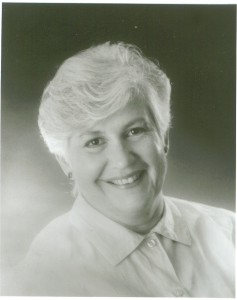Gloria F. Donnelly, Ph.D., RN, FAAN, FCPP
Dean and Professor, College of Nursing and Health Profession
Drexel University
Editor in Chief, Holistic Nursing Practice
Background:
 Gloria Ferraro Donnelly, a leader in nursing education, both regionally and nationally, is Dean of the College of Nursing and Health Professions at Drexel University. Before coming to Drexel University, she served as founding Dean of the School of Nursing, La Salle University, Philadelphia, PA. A native Philadelphian, Dr. Donnelly earned her Bachelor of Science in Nursing from Villanova University, Villanova, PA. She holds a Master of Science in Nursing from the University of Pennsylvania, School of Nursing with specializations in psychiatric nursing and nursing education. In 1985 she was awarded a federal National Service Research Pre-Doctoral Fellowship to attend Bryn Mawr College where she received the Ph.D. in Human Development in 1985.
Gloria Ferraro Donnelly, a leader in nursing education, both regionally and nationally, is Dean of the College of Nursing and Health Professions at Drexel University. Before coming to Drexel University, she served as founding Dean of the School of Nursing, La Salle University, Philadelphia, PA. A native Philadelphian, Dr. Donnelly earned her Bachelor of Science in Nursing from Villanova University, Villanova, PA. She holds a Master of Science in Nursing from the University of Pennsylvania, School of Nursing with specializations in psychiatric nursing and nursing education. In 1985 she was awarded a federal National Service Research Pre-Doctoral Fellowship to attend Bryn Mawr College where she received the Ph.D. in Human Development in 1985.
Dr. Donnelly is the author of four textbooks, the winner of two American Journal of Nursing Book of the Year awards. She is currently the editor of Holistic Nursing Practice, a refereed journal published by Lippincott, Williams and Wilkins and has published 100 articles and chapters. Further, she continues to teach and design courses particularly online.
Dr. Donnelly serves on many corporate boards including the Board of Hahnemann University Hospital, the Advisory Board of the Nurses Services Organization, a professional liability company and the Philadelphia Convention and Visitors Bureau. For nine years, Dr. Donnelly served as Chairman of the Board of Directors for Horizon House Inc., an organization that serves residents of the Delaware Valley who are experiencing mental illness and mental retardation. She has been honored as a March of Dimes, Woman of Achievement and as a Philadelphia Business Journal Woman of Distinction.
Overview:
This show is the first in a series on care giving told by a health professional who had a great deal of personal “hands on” experiences. Dr Donnelly will address a wide range of issues, challenges, stories, and solutions.
Insights from 26 years of experience as a family caregiver, caring for 3 elderly parents (mother lived until 89, mother in law to nearly 101 and father until nearly 104) all living under one roof with Dr Donnelly and her husband for a total of 26 years (longer than it took to raise and launch 2 daughters)! As all have passed (father in 2013), she and her husband will celebrate their 50th wedding anniversary this year (2014) and she will reflect on all she learned through the home based care giving experience.
Family care giving is a US national phenomenon with 44 million individuals, mostly women, assuming this role willingly or reluctantly. It is rewarding and challenging; funny and stressful – all at the same time.
As Dr. Donnelly’s mother-in-law used to say, “Old age is not a picnic and death is not a wedding.”
Join us to discover just what that means and how you can survive, thrive and reap the rewards of family care giving.
The discussion will highlight the following issues using humorous stories:
- The extent of family care giving in the US, including a profile of the typical family caregiver.
- When the Profile Becomes Personal:
Becoming a Family Caregiver – How it Happens. The correlation between quality of previous family relationships and the success of family care giving experience for all parties. - How A Pole Lamp Shed Light on Family Dynamics:
Role strain and confusion – Who’s in charge when living with elderly parents? “Where to put the 1950’s pole lamp? A metaphor for role negotiation. - The Nuts and Bolts of Daily Life of Caretakers:
Problems to anticipate through the course of family care giving.
Embracing the “un-spontaneous life.” Choosing the “right” primary care health provider; anticipating health issues with the elderly, i.e., mobility problems, sleep problems, falls, declining cognitive functioning, trips to the ER, hospitalizations, - Not Getting Lost in the Shuffle:
Dealing with your own personal crises and caring for self while caring for others.
3 Key Points:
- Family care giving for most people is part of life, rather than a “clinical event”. It is both challenging and rewarding depending on how you frame it. Talk about it openly to a trusted friend regularly or to other family caregivers to keep your perspective and equilibrium.
- Be assertive with health providers, don’t hold back, ask questions, educate yourself on entitlements for seniors. (i.e. add a few examples)
- Respite is essential. Caregiver must take care of self to continue the responsibility Define a range of affordable respite options such as disappearing to your room, taking a hot bath, hiring help, using daycare, to using respite care services outside the home.

 Valentine Group Health
Valentine Group Health


